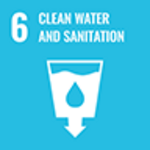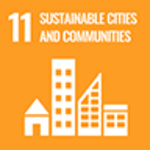
Faculty of Fisheries Sciences has been monitoring the marine environment and living organisms for many years using its two training vessels, the Oshoro Maru and the Ushio Maru, and has published the data. In addition, through joint research and outsourced projects with fisheries-related research institutes, we are developing and implementing technologies to minimize and prevent destruction of aquatic ecosystems. For example, the "Oshoro Maru" cooperates with the Ministry of the Environment's survey of drifting and seafloor debris (including microplastics) in the waters off the coast of Japan. We received the 2020 Minister of Land, Infrastructure, Transport and Tourism Award for our achievements in actively cooperating with observation reports and contributing to the development of meteorological services. These will achieve the 14th Sustainable Development Goal (SDGs) presented at the 2015 United Nations Summit: "Conserve and sustainably use the oceans, seas and marine resources for sustainable development". It can be said that it is one of the efforts for
Among the many problems caused by accelerated climate change, the problems related to the ocean, which accounts for about 70% of the earth's surface area, are particularly serious. It's a related issue. In order to correctly assess the capacity and vulnerability of the finite earth system and to realize "sustainability of fisheries", it is essential to assess the marine environment and fisheries resources based on scientific evidence, and to conduct proper resource management. In order to do so, it is necessary to collect a wide range of knowledge that overlooks the earth system and further advance research. In order to promote research on the ecology of aquatic organisms and research on the utilization of marine resources, this research institute actively concludes partnership agreements with local governments, etc. I am working on research every day with the aim of contributing to






















